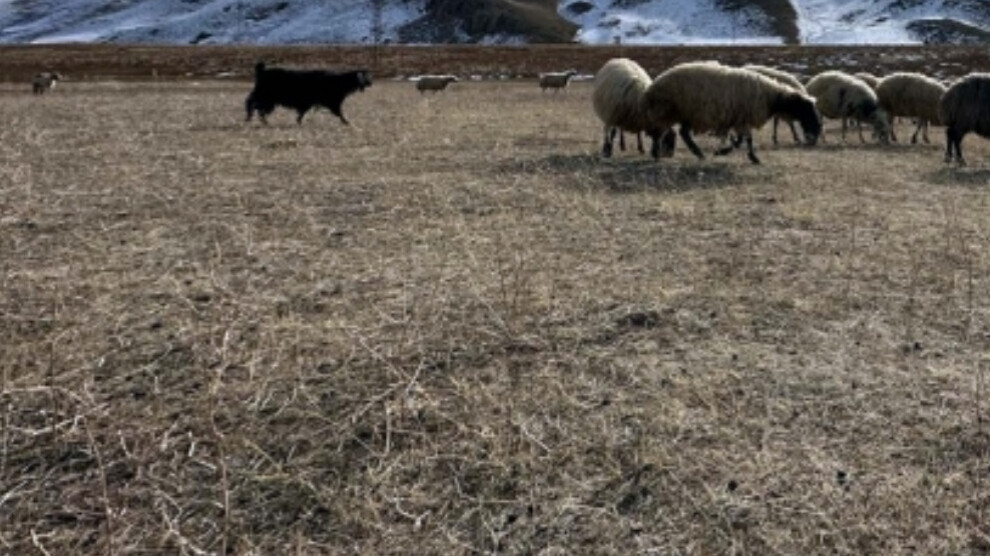The lack of snow in Serhat worries environmental associations and farmers
The lack of snow in the region of Serhat worries environmental associations and ecology activists as well as farmers.
The lack of snow in the region of Serhat worries environmental associations and ecology activists as well as farmers.

The lack of snow in the region of Serhat, where winter is normally 6 months long, is a concern. Many dams, lakes and streams have dried up due to the lack of snowfall in the region, where agriculture and animal husbandry are the main sources of livelihood. The unusually warm and snowless winter season worries environmentalists, environmental associations and the people of the region.
Ecology activist Fatih Şahin said that every year in the region of Serhat, roads are closed due to snowfall, and there is no access to villages and hamlets. Şahin said that in previous years, the Mukus (Bahçesaray) road was closed for 8 months, cutting of the connection with Van.
In Bedlis, the snow fell as high as the electricity poles. He added that the Hakkari-Van (Colemêrg-Wan) highway was closed due to avalanche danger.
Şahin said: “Our region has been dry and rainless in recent years. This drought negatively affects all life. The richness of the region depends on snow and rain. People living in this region are engaged in agriculture and animal husbandry. These areas are the source of life for millions of living things.”
The low rainfall will cause great harm, especially in the agriculture and livestock sector, Şahin said, adding: “Agricultural production will come to a standstill due to drought. Meat and milk production in livestock farming began to decline, as the grasslands were affected by drought. Due to the drought, many villagers had to sell their livestock. Unfortunately, the loss of biodiversity as well as the drying up of wetlands has also affected wildlife.
War harms nature
Şahin continued: “The policies of war and economic choices greatly affect all living things in the region. The construction of dams causes the air temperature to increase, which causes the snow to melt prematurely. While the water level in the rivers decreases by 70 percent due to global warming, the HEPPs established on these rivers trap the water and the creatures living in these waters become extinct. The forests burned and the safety dams built due to war policies have triggered global warming considerably. Wrong architectural structures, mines, sand and quarries, carbon-emitting vehicles, unfiltered factories, burning stubble and lack of education have created enormous ecological destruction in this territory. There is a decrease in the plant diversity of Muş plain, Mount Ararat, Mount Süphan, while Lake Wan and Lake Erçek are most affected by drought.”
40 percent of the wetlands destroyed
Zîlan Ecology Platform Co-spokesperson Mir Bahattin Demir stated that 40 percent of the wetlands in the region have been destroyed in 20 years, because of war policies. Wild mines were opened without an EIA, permission, or license, said Demir, adding: “Although Lake Van and its basin are among the richest basins in terms of endemic species when compared to the world, it is obvious that they are polluted by the trustee-run municipalities.”
Ecogenocide is a crime
Demir said: “We held a meeting with the farmers who plant wheat in Wan/Erdiş. According to them, wheat fields were dried because of the lack of water. The 'Eco-destruction Law Ecology Unions Conference' called for ecocide to be included as the 5th crime in the Constitution, like the crime of war and genocide.”